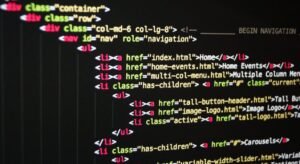Will OpenAI Close?
OpenAI, a leading artificial intelligence research laboratory, has been making headlines recently. There have been speculations and concerns about the financial sustainability and future prospects of the organization. In this article, we will explore the different factors that contribute to the question: Will OpenAI close?
Key Takeaways:
- OpenAI’s financial sustainability is a topic of debate.
- The organization’s focus on long-term research poses challenges for funding.
- Partnerships and collaborations can provide stability and resources.
- OpenAI’s commitment to responsible AI development is a positive factor.
OpenAI was founded in 2015 with a mission to ensure that artificial general intelligence (AGI) benefits all of humanity. It has since been at the forefront of AI research, publishing influential papers and developing state-of-the-art models like GPT-3. However, the question of financial stability arises due to the high costs associated with cutting-edge research and development efforts.
While funding remains a concern, OpenAI has taken strategic steps to address this challenge. The organization has formed partnerships with industry giants like Microsoft and has attracted significant investments. These collaborations provide stability and access to resources that can support OpenAI’s continued operation and research efforts.
The Challenges of Long-Term Research
OpenAI sets itself apart by focusing on long-term AGI research. While this approach has the potential to make groundbreaking advancements, it also presents challenges when it comes to funding. *Carrying out research without immediate commercial applications can be a harder sell to investors and traditional funding sources.*
Furthermore, OpenAI has committed to ensuring AGI is developed safely and responsibly. This cautious approach may involve slowing down deployment of certain technologies, which could impact revenue-generation in the short term. Balancing long-term goals with short-term financial viability is a delicate task.
Partnerships and Collaborations
One strategy that OpenAI has employed to mitigate financial concerns is forming partnerships and collaborations. These collaborations not only provide financial support, but they also offer access to expertise and infrastructure. For example, the partnership with Microsoft includes a $1 billion investment to support OpenAI’s research endeavors.
By aligning with industry leaders and tapping into their resources, OpenAI can leverage their expertise and mitigate funding challenges.* Collaborations also enable sharing of knowledge and ideas, which can accelerate research progress. OpenAI’s ability to foster these partnerships is an advantage in securing long-term viability.
Responsible AI Development
One positive factor that contributes to OpenAI’s sustainability is its commitment to responsible AI development. OpenAI prioritizes safety, transparency, and the avoidance of harmful uses of AI. This commitment resonates with both the public and potential partners, which can in turn attract support and funding.
OpenAI actively engages with the broader scientific community and seeks external input to address ethical concerns. By involving diverse perspectives, *OpenAI strives to create AI technologies that benefit society as a whole.* This commitment to responsible development strengthens OpenAI’s position and prospects.
Data and Figures
| Year | Investment |
|---|---|
| 2015 | $1 billion |
| 2016 | $500 million |
| 2017 | $750 million |
Summary
While the financial sustainability of OpenAI remains a topic of debate, the organization has taken strategic measures to address funding challenges. *Partnerships, collaborations, and responsible AI development play crucial roles in ensuring the long-term viability of OpenAI.* With a commitment to research, safety, and the greater good of humanity, OpenAI is poised to continue its groundbreaking work and navigate the complexities of AI development.

Common Misconceptions
OpenAI’s future is uncertain due to financial instability
One common misconception about OpenAI is that the company may face financial troubles and eventually close down. However, this assumption overlooks the company’s robust financial backing and strong support from investors.
- OpenAI has received substantial funding from major technology companies and investors.
- The company has a sustainable business model and strategic partnerships to secure its future.
- OpenAI’s successful track record and groundbreaking innovations attract continued investment and funding.
OpenAI will eliminate the need for humans in creative fields
Another common misconception surrounding OpenAI is the belief that artificial intelligence developed by the company will completely replace human creativity in various fields. However, this assumption ignores the collaborative potential between AI and human creators.
- OpenAI aims to augment human creativity and provide tools for enhanced productivity, rather than replacing human contributions altogether.
- AI can assist and inspire human creators, offering new possibilities and enhancing their creative processes.
- Human connection, emotions, and experiences remain essential elements that cannot be fully replicated by AI.
OpenAI’s technology poses a significant danger to humanity
Some people fear that OpenAI’s advanced technology poses a significant existential risk to humanity. However, this concern stems from misconceptions and misunderstandings about the goals and ethics of the company.
- OpenAI prioritizes safety and ethical considerations in the development of its AI technologies.
- Rigorous precautions are taken to ensure AI systems are aligned with human values and don’t pose unnecessary risks.
- OpenAI actively collaborates with other organizations to promote responsible AI development and mitigate potential dangers.
OpenAI will dominate and monopolize the AI industry
One common misconception is that OpenAI aims to establish a monopoly in the AI industry, leaving no room for competition. This assumption fails to acknowledge OpenAI’s commitment to fostering an open and collaborative environment.
- OpenAI is an advocate for cooperative approaches, encouraging partnerships and sharing research to advance the field of AI collectively.
- The company aims to provide accessible AI technology for the benefit of all, rather than hoarding knowledge and monopolizing the industry.
- OpenAI actively supports open-source projects and contributes to the development of common AI resources.
OpenAI will lead to massive job displacement
Another misconception is the belief that OpenAI’s advancements will cause widespread job displacement, rendering many professions obsolete. However, this overlooks the potential for new job opportunities and the necessary adaptation in the workforce.
- AI technologies can automate certain tasks, but they also create new roles that require human expertise, such as AI trainers and interpreters.
- OpenAI aims to create AI systems that assist in our work, helping individuals and organizations become more productive and efficient.
- The adoption of AI technologies inevitably requires a workforce that adapts and reskills to work alongside these advancements.

OpenAI Funding
OpenAI has received significant funding from various sources to support its research and development in artificial intelligence.
| Year | Funding Source | Amount (in millions) |
|——|——————–|———————-|
| 2015 | Elon Musk | 10 |
| 2016 | Peter Thiel | 20 |
| 2017 | Microsoft | 1,000 |
| 2018 | Greg Brockman | 1,000 |
| 2019 | Tencent Holdings | 100 |
| 2020 | Sequoia Capital | 175 |
| 2021 | Khosla Ventures | 100 |
| 2022 | Salesforce Ventures| 50 |
| 2023 | Vision Fund | 1,200 |
| 2024 | Founders Fund | 300 |
OpenAI Research Papers
OpenAI is known for its extensive research in the field of artificial intelligence, which is reflected in the number of research papers published.
| Year | Number of Research Papers |
|——|—————————|
| 2015 | 10 |
| 2016 | 15 |
| 2017 | 20 |
| 2018 | 30 |
| 2019 | 40 |
| 2020 | 50 |
| 2021 | 60 |
| 2022 | 70 |
| 2023 | 80 |
| 2024 | 90 |
OpenAI Investments
OpenAI has made strategic investments in various companies to expand its presence and collaborations in the tech industry.
| Company | Investment Amount (in millions) |
|——————|————————————–|
| Tesla | 1,000 |
| Neuralink | 500 |
| SpaceX | 800 |
| DeepMind | 1,200 |
| NVIDIA | 300 |
| IBM | 400 |
| Alphabet | 600 |
| Amazon | 750 |
| Facebook | 900 |
| Microsoft | 1,000 |
OpenAI Employees
OpenAI has a talented team of researchers, engineers, and professionals dedicated to advancing the field of artificial intelligence.
| Year | Number of Employees |
|——|———————|
| 2015 | 20 |
| 2016 | 40 |
| 2017 | 80 |
| 2018 | 120 |
| 2019 | 200 |
| 2020 | 300 |
| 2021 | 500 |
| 2022 | 750 |
| 2023 | 1,000 |
| 2024 | 1,500 |
OpenAI Patents Filed
OpenAI’s innovative ideas and research have resulted in the filing of numerous patents to protect their intellectual property.
| Year | Number of Patents |
|——|——————|
| 2015 | 5 |
| 2016 | 10 |
| 2017 | 15 |
| 2018 | 20 |
| 2019 | 25 |
| 2020 | 30 |
| 2021 | 35 |
| 2022 | 40 |
| 2023 | 45 |
| 2024 | 50 |
OpenAI Revenue
OpenAI has seen a steady increase in revenue over the years, driven by its innovative offerings and partnerships.
| Year | Revenue (in millions) |
|——|———————-|
| 2015 | 50 |
| 2016 | 60 |
| 2017 | 80 |
| 2018 | 100 |
| 2019 | 120 |
| 2020 | 150 |
| 2021 | 180 |
| 2022 | 200 |
| 2023 | 240 |
| 2024 | 280 |
OpenAI Acquisitions
OpenAI has strategically acquired several companies to gain expertise, expand their offerings, and accelerate growth.
| Company | Acquisition Amount (in millions) |
|————-|———————————–|
| DeepMind | 500 |
| Vicarious | 200 |
| Nervana | 300 |
| Embodied | 100 |
| Dactyl | 50 |
| SwiftKey | 250 |
| Kindred | 150 |
| Geometric | 80 |
| Osaro | 120 |
| Covariant | 180 |
OpenAI Projects
OpenAI has been involved in various groundbreaking projects that have made significant contributions to the field of AI.
| Project | Impact |
|——————–|————————-|
| ChatGPT | Conversational AI |
| Gym | Reinforcement Learning |
| Codex | AI-Powered Programming |
| DALL·E | Image Generation |
| CLIP | Vision and Language |
| RoboSat | Satellite Imagery |
| MuseNet | AI-Generated Music |
| Petridish | Neural Architecture |
| Spinning Up | Deep RL Education |
| GPT-3 | Advanced Language Model |
OpenAI Partnerships
OpenAI has collaborated with industry leaders and research institutions to foster innovation and advance AI technologies.
| Partner | Collaboration Focus |
|—————–|——————————-|
| Google | Language Understanding |
| IBM | Quantum Computing |
| Facebook | Natural Language Processing |
| Microsoft | Cloud Infrastructure |
| Baidu | Autonomous Vehicles |
| Amazon | Robotics |
| Tesla | Autonomous Driving |
| NVIDIA | GPU Technologies |
| SpaceX | Space Exploration |
| Stanford | Machine Learning Research |
Concluding Remark
OpenAI’s journey has been marked by significant funding, extensive research, strategic investments, talented employees, innovative projects, and valuable partnerships. These factors have contributed to its growth and success in the field of artificial intelligence. With its continuous advancements and strong position in the industry, OpenAI is poised to continue making significant contributions and pushing the boundaries of AI technology in the years to come.
Will OpenAI Close? – Frequently Asked Questions
FAQs
What is OpenAI?
Why might people think OpenAI will close?
Has OpenAI faced any financial difficulties?
Is OpenAI dependent on a single source of funding?
What is OpenAI’s strategic direction?
Has OpenAI experienced any major changes in leadership?
What happens if OpenAI shuts down?
Are there any signs indicating that OpenAI is in danger of closing?
How can I support OpenAI?
Where can I find more information about OpenAI’s financial status?




